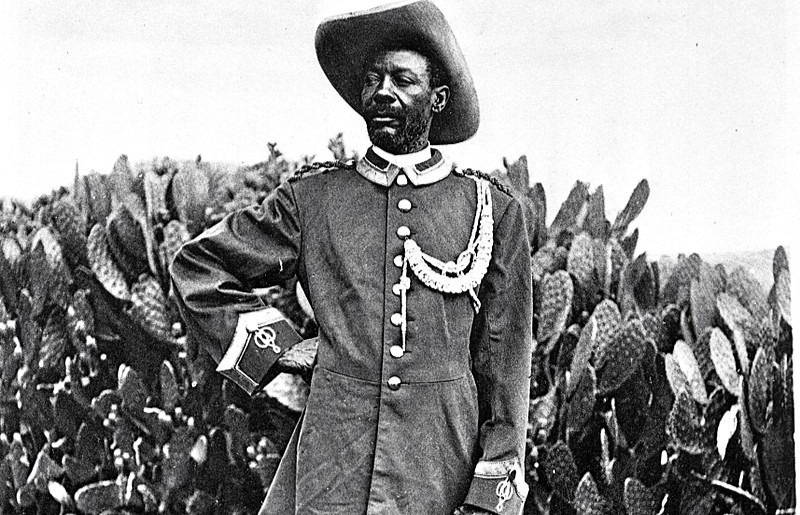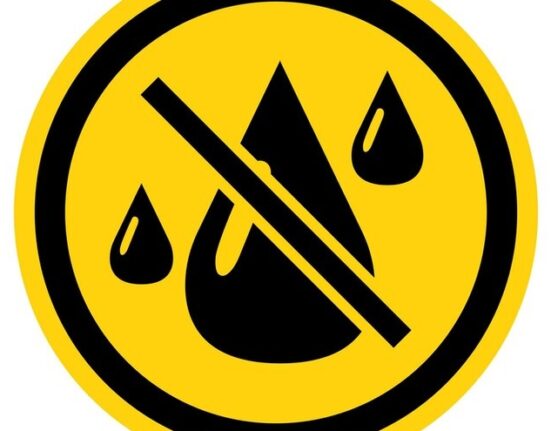Samuel Maharero, a name synonymous with courage, leadership, and resistance, stands as a monumental figure in Namibian history. As the paramount chief of the Herero people, Maharero led his people through some of the most turbulent and harrowing periods in Namibia’s colonial history. His leadership during the early 20th century, particularly during the Herero Uprising of 1904, shaped not only the future of the Herero people but also the broader trajectory of Namibia’s fight for independence.
In this article, we will explore the life and legacy of Samuel Maharero, his defiance against German colonialism, his role in the Herero War, and how his actions contributed to the forging of Namibia’s national identity.
1. Early Life and Rise to Leadership
Samuel Maharero was born in 1845 in what is today Namibia. He belonged to the Herero ethnic group, known for its strong pastoral culture, where cattle held significant economic and social value. The Herero people lived in the central and eastern parts of Namibia, and they were deeply rooted in their land, traditions, and way of life.
Maharero’s early life was shaped by a combination of Herero traditions and the challenges of growing European influence in southern Africa. His family was part of the Dama clan and belonged to the influential Herero chieftaincy. Maharero’s father, Tjamuaha, was a key leader of the Herero people before him. Samuel was groomed to eventually succeed his father as the chief of the Herero people, and in his youth, he trained in the leadership and military tactics that would later prove essential during the Herero War.
As a leader, Maharero was deeply committed to the welfare and unity of the Herero people. His leadership style was defined by his vision for the Herero’s future, which was increasingly threatened by the encroachment of European colonial powers, particularly Germany.
2. German Colonization of South West Africa and Its Impact on the Herero
In the late 19th century, Namibia, then known as German South West Africa, became a German colony. As European powers scrambled to expand their empires during the Scramble for Africa, Germany established control over much of modern-day Namibia in the 1880s. For the indigenous Herero and Nama peoples, the arrival of the Germans meant the beginning of harsh colonial rule, which included land dispossession, forced labor, and the imposition of European economic and social systems.
The Germans initially approached the Herero with promises of trade and peaceful coexistence. However, the true nature of German colonialism soon became apparent as settlers began encroaching on Herero lands and exploiting the labor of the indigenous people. The German military began to station forces in Herero territories, while the local Herero population faced severe restrictions on their freedom and rights.
Maharero, like other Herero leaders, became increasingly suspicious of the Germans’ intentions. The situation worsened as the Germans demanded more control over Herero land, cattle, and labor. Maharero recognized the existential threat posed by German imperialism, and his primary concern became the survival of his people and their cultural identity.
3. The Herero Uprising of 1904: Resistance Against German Rule
By 1904, the tensions between the Herero people and the German colonial authorities had reached a breaking point. The Herero Uprising, which began in January 1904, was a direct response to the increasing exploitation, land seizures, and harsh treatment of the Herero population by the Germans. Maharero, understanding that the Germans would stop at nothing to destroy their way of life, chose to lead a military resistance against the colonial forces.
Maharero’s leadership was pivotal in organizing the Herero forces. Despite being outgunned and outnumbered, the Herero launched a series of coordinated attacks on German settlers and military outposts. At the beginning of the uprising, the Herero warriors inflicted several defeats on German forces, showcasing their courage and resilience. However, German reinforcements soon arrived under the command of General Lothar von Trotha, and the situation turned dire.
Von Trotha, infamous for his brutal tactics, issued the “Extermination Order” in response to the Herero resistance. This order called for the complete annihilation of the Herero people, and it was implemented with horrific brutality. The Herero were forced into the Kalahari Desert, where they suffered from hunger, dehydration, and disease. Thousands were executed, and many more died from the harsh conditions.
Despite the overwhelming odds, Maharero’s leadership during this period was crucial in keeping the Herero struggle alive. Even though the Herero were eventually forced to retreat into the desert, Maharero continued to resist, and his defiance against German imperialism became symbolic of the broader African struggle against European colonialism.
4. Exile and Later Years: The Herero Struggle for Survival
After the defeat of the Herero forces, Samuel Maharero was forced into exile in British-controlled Botswana (then known as Bechuanaland). His departure from Namibia did not mark the end of his leadership, however. While in exile, Maharero remained a symbol of Herero resistance and continued to mobilize support for his people. During his time in exile, he sought assistance from other African leaders, including the British and the South African government, in the hope of gaining military support to push the Germans out of Namibia.
In the years following the Herero defeat, the Herero people faced tremendous hardship. The population was decimated by the genocide, and the remaining Herero were subjected to forced labor, land dispossession, and continuous oppression. Despite these challenges, Samuel Maharero’s influence remained strong among the Herero, and his commitment to the fight for justice inspired future generations of Namibians.
Maharero died in 1923 while still in exile, but his legacy lived on. His defiance against colonial rule continued to serve as a beacon of hope for those who sought to liberate Namibia from both German and later South African rule.
5. Samuel Maharero’s Legacy: Shaping Namibia’s National Identity
Samuel Maharero’s role in the resistance against German colonialism is a central chapter in Namibia’s history. His courage, leadership, and determination to protect his people against foreign oppression made him a hero not only for the Herero but for all Namibians who fought against colonization and apartheid.
Maharero’s legacy is evident in the way his resistance was woven into the broader Namibian independence movement. The Herero struggle, and the actions of leaders like Maharero, inspired future generations to resist injustice and to fight for a sovereign Namibia. Maharero’s role as a unifying figure for the Herero people helped foster a sense of national pride and identity that resonated with other indigenous groups who also suffered under colonial rule.
In post-independence Namibia, Samuel Maharero is celebrated as a national hero, with various monuments, statues, and institutions dedicated to preserving his memory. His leadership is honored in Namibian schools and history books, and his actions during the Herero Uprising are often cited as pivotal moments in the country’s struggle for freedom and justice.
One of the most profound ways in which Maharero’s legacy continues to impact Namibia is through the ongoing reconciliation process. His defiance against colonial oppression laid the groundwork for the spirit of unity and resilience that has defined Namibia’s post-independence development.
Samuel Maharero’s defiance against German colonialism made him one of the most significant figures in Namibian history. His leadership during the Herero Uprising of 1904, and his subsequent exile, left a lasting impact on the Herero people and on the broader Namibian struggle for independence.
Maharero’s actions serve as a reminder of the power of resilience, unity, and cultural pride in the face of foreign oppression. His legacy continues to shape Namibia’s national identity and collective memory, and his name remains synonymous with the fight for justice and the preservation of indigenous rights.
Today, Samuel Maharero’s legacy lives on not only in historical accounts but also in the hearts and minds of Namibians who honor his courage and his commitment to their freedom. He stands as a beacon for those who continue the fight for equality, sovereignty, and the protection of Namibia’s rich cultural heritage.













